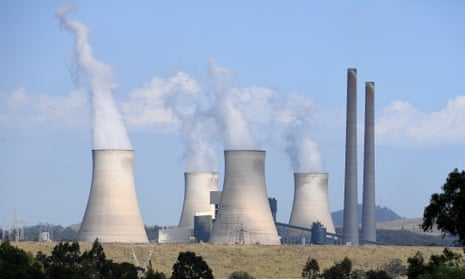Sydney’s Inner West council says it has 100% divested from fossil fuels after a three-year process that began before the amalgamation of Leichhardt, Marrickville and Ashfield councils.
The council is now calling on the New South Wales government to work with the big four banks “to develop financial products that will allow more organisations to follow our lead”.
The council has moved about $100m over three years and is one of more than 40 local governments across Australia that have taken steps to move out of funds with investments linked to climate change.
It said its divestment included withdrawing money it had in products with the big four banks – with the exception of some longer term investments in climate and socially responsible bonds – and transitioning into other non-fossil fuel investments.
It follows a lengthy campaign by the environmental organisation 350.org pushing institutions to divest from fossil fuels.
At its first meeting in 2017, the newly merged Inner West council passed a motion to become fully divested from fossil fuel funds.
Leichhardt already had a target of 50% divestment before the amalgamation and its previous mayor, Labor’s Darcy Byrne – now the mayor of Inner West council – said the new council wanted to continue that process.
“The inner west of Sydney, sometimes referred to as the people’s republic of the inner west, is home to an enormous population of people who believe climate change is an existential threat to society,” Byrne said.
“We’re determined that the inner west will be a national leader in the environmental debate and that means making important symbolic stands like divestment but also putting our money where our mouth is.”
He said the process was managed in increments, and with monthly reports from council staff in an effort to mitigate financial risks.
Byrne said they had still faced challenges and Tcorp – the New South Wales Treasury Corporation – had expressed concern at a meeting last year that it could affect the council’s ability to borrow funds from it.
A spokeswoman for Tcorp said it had a policy of “not discussing client work” and therefore couldn’t respond to questions, but she confirmed the agency was working with the council on the financing of its new swimming pool at Ashfield.
A spokeswoman for Inner West council said it wanted the state government to work with the big banks to develop short-term investment options that were not linked to industries that contribute to global heating.
Glen Klatovsky, the acting chief executive of 350.org, said Australia had more local governments than anywhere else in the world that had committed to divestment.
He said Inner West, to his knowledge, was the first in NSW to manage 100% divestment because of the work and challenges involved.
“The council has a fiduciary and legal duty under the local government act to be careful with their investments,” Klatovsky said.
“Several have raised the issue of governments and banks working together to create a fund that would meet this public demand then it would be much easier for Australian local governments to deliver on their commitments to divest.
“At the moment there’s no financial reason that this couldn’t happen.”
Klatovsky said 350.org had worked with nearly 40 councils that had committed to divestment, but the total number around Australia making similar commitments was greater than that.
“The most interesting place is WA where 33% of the population is covered by councils that have divested,” Klatovsky said.
